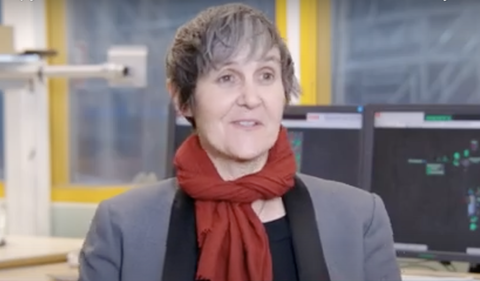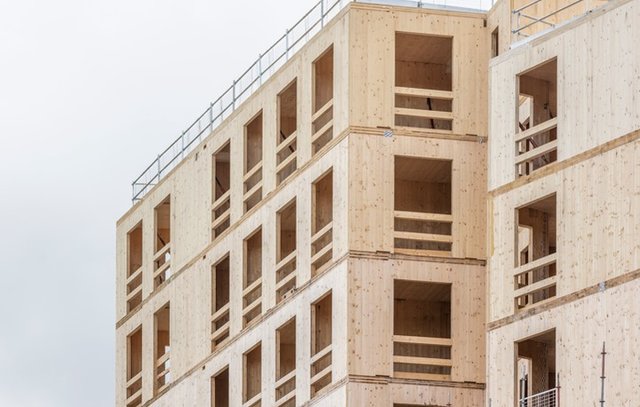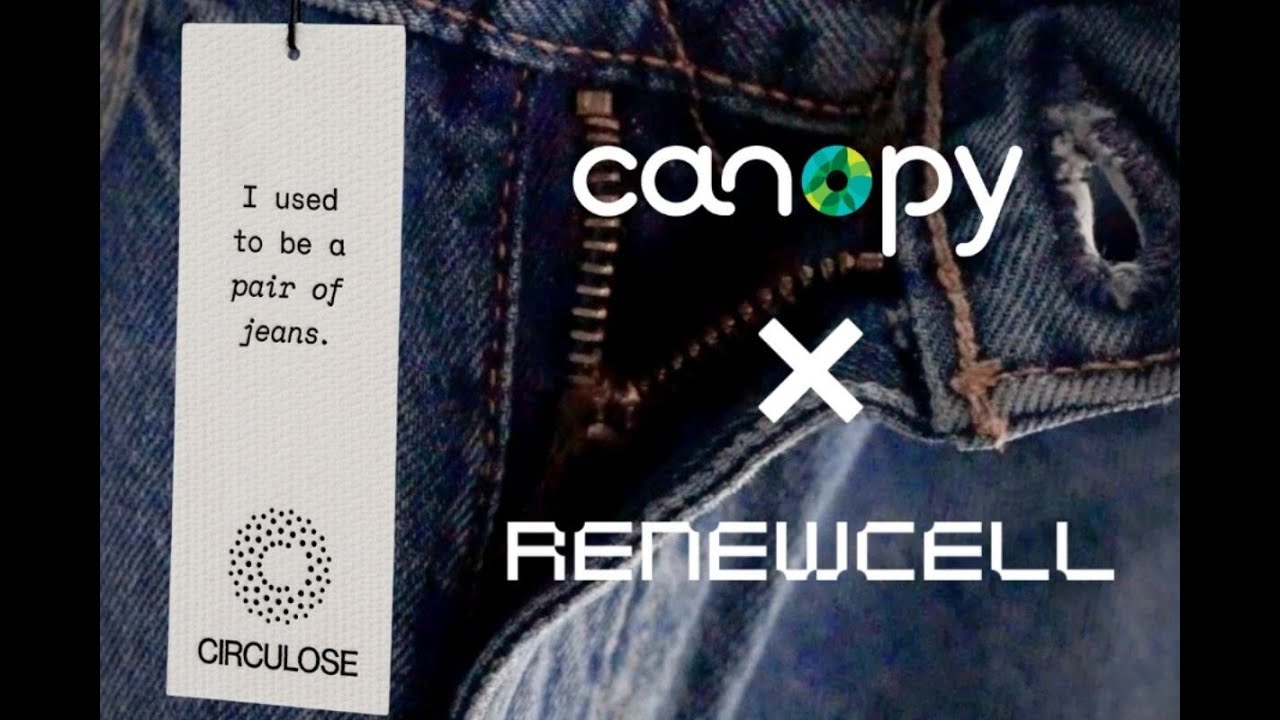Our
Impact
Our
Impact
Together with our partners, Laudes Foundation is working towards a climate-positive and inclusive economy, where ideas have been reshaped, power has been rebalanced and incentives redesigned so business and markets are working – bravely and proactively – to mitigate climate change and reduce inequality.
To achieve this ambition we focus on sectors that have an outsize impact on climate change and inequality – fashion, the built environment, and finance. We also seek to drive new economic thinking and narrative changes and promote stronger labour rights protections in each of these areas as critical levers to drive systemic change.
Go to sector / industry
Built
Environment
Finance and
Capital Markets
Fashion
New Economic Thinking and Narratives
Our challenges
Decarbonising the built environment
The building and construction sector currently accounts for almost 40% of global carbon emissions. At the same time, the urban population will more than double its current size by 2050, at which point nearly 70% of people will live in cities. The sector urgently needs to be transformed so that it becomes regenerative and inclusive, shaping cities and buildings in ways that deliver positive impacts for residents and workers.
~40%
of emissions
~50%
of materials use
High carbon
cement and steel
Business case
unclear for bio-based materials
Real estate is the largest global asset class at over
USD 300 trillion
We are estimated to spend
90% of our lives indoors
But the sector is at the starting blocks on climate and inequality
Where decarbonisation becomes the industry's new normal
Our partners are working towards a future where decarbonisation becomes the industry’s new normal, by tackling whole life carbon and shifting from extractive fossil-based materials to regenerative nature-based materials.
To accelerate this transformation, they work to influence policymakers – both at EU and national level – so that regulation tackling the whole carbon life cycle of buildings can be implemented more widely with clear targets.
This has enabled significant policy shifts in the ongoing Energy Performance of Buildings Directive (EPBD) debates – most recently with the European Parliament agreeing to introduce direct measures to tackle embodied carbon in buildings. This move by a major block of leading regulators is something our partners expect to reverberate around the world.
Just transition
in the built environment
In order for the climate transition to be just, our partners work to ensure the transformation of industry and finance delivers true value for residents and workers, while embracing new economic models.
We have partnered with the Institute forHuman Rights and Business (IHRB) to drive a just transition in the built environment. The partnership has produced an agenda-setting ‘Better Building(s)’ policy briefing which generated much attention at COP27 and provided input to the EU consultation process on the development of a social taxonomy. The outcome of this effort will help drive transformative practices in the built environment’s economic and business decision-making processes and challenge the current approaches of short-termism and a race-to-the-bottom – both deep roots of harmful social and environmental outcomes.
Investments
across buildings’ lifetimes
Finance and investment must scale to drive industry transformation and account for the total carbon impacts and social impacts of investments across buildings’ lifetimes.
Laudes has been a long-term partner to the Carbon Risk Real Estate Monitor (CRREM) initiative – a Paris-aligned pathway for real estate investors that increases transparency, defines measures to speed up decarbonisation on an aggregated level and tracks achievements toward these aims.
CRREM covers 28 countries in Europe, North America, and Asia-Pacific across the commercial real estate sector, including retail, offices, logistics and the residential sector. More than EUR 1 trillion assets under management use the tool and it is rapidly becoming an industry standard, with CRREM now working in partnerships with the Science Based Targets Initiative (SBTi) to guarantee one major global standard for operational decarbonisation of buildings and provide companies in this sector with the clarity and confidence that their plans are aligned with climate science.
Our challenges
Finance and Capital Markets
Transforming the financial system is essential to securing a future where global markets value all people and respect nature. At the same time, finance is a critical lever to drive deep industry transformation.
Estimates suggest the global financing for the climate transitions will need
USD 3-5 trillion annually by 2030
A three- to fivefold increase in finance is needed and
45% could be covered by private finance
But:
only 1 %
of the highest emitting listed companies currently has capital allocation plans aligned with net zero – so the transition is not yet being financed.
Changing rules
and practices
At the systems level, we need to build the importance of climate, nature and biodiversity, and inequality into our definition of value and align incentives within the finance sector to match. There needs to be a systemic shift in the rules and practices that dictate how the finance system operates.
Industry is not moving quickly enough towards a just transition. Our partners help develop pathways, metrics and targets that provide an equitable route to the Paris goals.
Science-based targets are clearly defined pathways for companies to reduce carbon emissions in line with the goals of the Paris Agreement. A total of 5,032 companies had committed to the Science Based Targets Initiative (SBTi) by mid-2022. Building on the new partnership between SBTi and the Carbon Risk Real Estate Monitor (CRREM) initiative to create one global standard for the operational decarbonisation of buildings (above) this included more than 30 cement companies, of which a third had committed to net-zero.
While the SBTi and others have made significant progress in embedding carbon considerations into real estate investment, another Laudes partner, Global Real Estate Engagement Network (GREEN) has also identified there is still much work to be done. It published its first public engagement and progress report, highlighting that the public real estate industry is not on track to meet net-zero targets. It later received the ‘Outstanding Industry Contribution’ award at the IPE Real Estate Global Conference and Awards 2022.
Financial incentives
to transform industry
Financial markets’ participants need to use their resources to help transform industry. Our partners support investors to positively apply their influence towards transition and help create frameworks for industries to deliver better outcomes.
This year the Partnership for Carbon Accounting Financials (PCAF) launched an extensive, free, publicly available database to enable the financial industry to measure and track the financed emissions of their European building portfolios towards net zero. By the end of the year this database had been used by more than 1,200 stakeholders. Later in the year, PCAF continued this industry support by publishing guidance on financing the European building transition to net-zero, as well as further technical recommendations setting out accounting procedures for both investors and banks.
In terms of policy change, our partner the Institutional Investors Group on Climate Change (IIGCC) also made significant progress on the revised Energy Performance of Buildings Directive (EPBD). IIGCC recommendations on aligning and managing infrastructure portfolios with the goal of achieving global net zero emissions by 2050 or sooner were successfully incorporated into the ongoing legislative debates.
Long-term
value
The finance sector is incentivised towards short-term profits rather than long-term value. Our partners push central banks to put climate and inequality at the centre of their decision-making, so that the long-term future of our planet is considered on balance sheets.
In 2022 Laudes partners continued to influence significant climate transition outcomes at the main financial regulatory body in the EU, the European Central Bank (ECB). A variety of partners – including Positive Money Europe, the New Economics Foundation and Sunrise Project – played key roles in changing the European Central Bank’s position to now ensure its bond buying practices acknowledge its role in managing climate-related risks and support the green transition.
Our challenges
Fashion: transforming the apparel supply chain
The global fashion industry employs more than 75 million workers and touches the lives of over 100 million smallholder farmers, having an immense social impact. From a climate perspective, the industry is responsible for 8-10% of global carbon emissions.
Laudes Foundation is working with partners to foster supply chain and materials innovation, promote accountability and workers’ rights to ensure a just transition, through a range of interventions.
1.35%
of global oil consumption
>200mn
trees logged annually
~92mn
tonnes of waste textile
8-10%
of global climate impacts
~60%
of emissions from materials
~100mn
smallholder producers globally
~60mn
supply chain workers globally
Financing the transition to sustainable materials
Supply chain responsibility begins where fashion brands source their materials. To enable a large-scale transformation of the system, we need to transition the industry’s production and sourcing models.
Take cotton for example. Our approach has been to shift from a single commodity focus to develop a whole landscape approach centred on place-based investments in regenerative agriculture. And we’ve helped develop four such demonstrations in India, Brazil, Tanzania and Pakistan, working alongside experts like IDH, World Wildlife Fund, GIZ and others, to build such regenerative production landscapes collaboratives. These innovative models foster regenerative agricultural ecosystems that improve both environmental and social outcomes, lifting and organising producers and bringing them closer to market players sourcing and investing in these areas.
Securing a market for next-generation and circular materials
To replace oil-based materials like polyester and viscose, we need to build an ecosystem and develop infrastructure that enables the large-scale adoption of next-generation and circular materials. Our focus has been to accelerate investments into the necessary innovations and their supply chains so that industry can more readily adopt and scale these alternatives.
Our partners marked key milestones in 2022 that saw innovations be validated by the market, and investments flow towards commercialisation efforts. Global environmental non-profit Canopy’s solutions-driven CanopyStyle campaign has now seen more than 500 of the world’s leading fashion designers and apparel brands – representing more than USD 857 billion in annual revenue – commit to keeping products from vital forests out of their fabric supply chains and spurred the production of low-carbon alternatives. Canopy’s work has been so transformative that it recently received global recognition by being awarded the 2023 Audacious Project – a significant investment to scale its efforts.
Strengthening workers agency
Workers form the backbone of the global economy but are often in situations of vulnerability, precarity and where their rights are not respected. In addition, climate change is impacting the poorest and most vulnerable communities the hardest, exacerbating existing and exposing new inequalities. To rebalance power and improve the lives of millions who sit in supply chains, we need to strengthen worker agency.
Our partners are working to secure a just transition of the industry, ensuring solutions are inclusive and rights-led, while also pushing for the representation of worker voices in core policy discussions. At the same time, they are working to build strong social protections. The International Labour Organization and the German Agency for International Cooperation, along with the Bangladesh government, officially launched the Employment Injury Scheme (EIS) pilot in 2022, which is the country’s first-ever social insurance scheme. This marks a major milestone in protecting workers in the second-largest apparel-producing country in the world, and is particularly notable following the devastating Tazreen and Rana Plaza tragedies.
Another grassroots-based partner, Awaj Foundation in Bangladesh, established the Ready-Made Garment Workers’ Forum. It aspires to reach an influence akin to the Bangladesh Garment Manufacturers and Exporters Association (BGMEA) and become a consolidated voice for workers to negotiate nationally and internationally. It has already placed 300 workers in the driver’s seat for signing four collective bargaining agreements covering more than 15,000 workers.
Changing the rules of the system
To accelerate the adoption of fair supply chain practices, we need greater accountability through bold transparency and regulatory mechanisms. 2022 saw significant milestones around key policy interventions, each designed to ensure critical momentum to effectively tackle the inequalities that persist in industries such as fashion.
Laudes Foundation’s partners, including Frank Bold, the European Coalition for Corporate Justice (ECCJ), Shift and Partners in Change (PiC) contributed to the development and strengthening of landmark policy interventions, including the European Commission (EC) Directive on Corporate Sustainability Due Diligence (CSDDD), the Corporate Sustainability Reporting Directive (CSRD), the EU’s Forced Labour Regulation, the Fashioning Accountability and Building Real Institutional Change (FABRIC) Act in the USA, and the Business Responsibility and Sustainability Report (BRSR) in India.
We also know that data is critical to the push for accountability. Our partners Fashion Revolution, Mapped in Bangladesh and Open Supply Hub continue to build transparency of industry supply chains, helping provide the necessary inputs for meaningful corporate action on measures like human rights due diligence.
Our challenges
New economic ideas and narratives to change mindsets
To ensure business and industry pursue regenerative, climate-resilient and inclusive practices we need better ideas about how economies, and therefore industries, create value. And we need to disseminate these ideas into narratives with enough power to reach and build the will of investors, business leaders and policymakers to act at scale on the solutions that will support industry transformation.
Rethinking how the economy can work for people and the planet
In 2022, Laudes Foundation’s partners made significant progress on pushing governments to think beyond GDP as a sole measure of an economy’s wealth, to include other metrics that reflect equality and planetary boundaries.
The Centre for Understanding Sustainable Prosperity’s (CUSP) supported a United Kingdom All Party Parliamentary Group to push the Office for National Statistics to adopt national wellbeing indicators, while ZOE Institute worked with the European Commission to integrate an economic resilience index into its policymaking. At the same time, University College London’s Institute for Innovation and Public Purpose (IIPP) is leading efforts to redefine the role of the state, recognising innovation cannot be financed and delivered by the private sector alone. Its Mission-Oriented Innovation Network (MOIN) is working with over 15 countries and municipalities, including South Africa, Peru and the United States, and its work was referenced by the UK Department for Levelling Up, Housing and Communities’ agenda for more equitable and sustainable growth.
Translating new ideas into narratives
To effectively raise the debate about how to change the economic system so we can address the climate and inequality crises, we need to create narratives with the power to shift the mindsets of investors, business leaders and policymakers.
Our partner, Doughnut Economics Action Lab (DEAL), together with its changemaker network, is creating open access tools, stories and case studies to inspire decision-makers within cities and businesses to build sustainable growth strategies. The stories were covered by a broad spectrum of publications in more than 20 countries, from the New York Times to the Financial Times, and Vox to Vogue.
In the UK, the Economic Change Unit significantly contributed to the BBC’s impartiality review into how it covers fiscal policy with most recommendations adopted. And 50 years after the seminal Limits to Growth publication, the Club of Rome released Earth4All – A Survival Guide for Humanity, a non-fiction bestseller with over 70,000 copies sold, translated in six languages, including Chinese, and with endorsements from political leaders from Austria, Singapore, Spain and Costa Rica, to name a few.
Influencing
the agenda
To shift mindsets about how economies create value, we need to amplify these narratives that create greater accountability, drive impact and change in industry, and influence policy decision-making.
In 2022, we strengthened our partnerships with Thomson Reuters Foundation, the Pulitzer Center and the Reuters Institute’s Oxford Climate Journalism Network, to increase the capacity of newsrooms and reporters worldwide to cover the climate and inequality crises, and increase their access to information, data and spokespeople.
This included the Oxford Climate Journalism Network’s launch of an open-source climate database with Carbon Brief of 850 climate scientists and policy experts from the Global South, speaking 72 languages, to ensure climate reporters, especially those from developing economies, have access to the data and tools they need to strengthen their climate reporting.
Fashion: transforming the apparel supply chain
Securing a market for next-generation and circular materials
Through Canopy’s engagement with brands and manufacturers, one such alternative – Circulose, a fibre made by Renewcell through chemically recycling textile waste – has received sufficient support to establish the world’s first commercial-scale textile-to-textile recycling facility.



Share